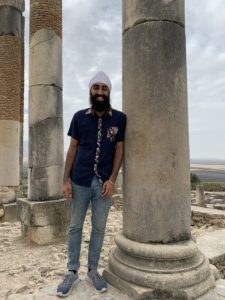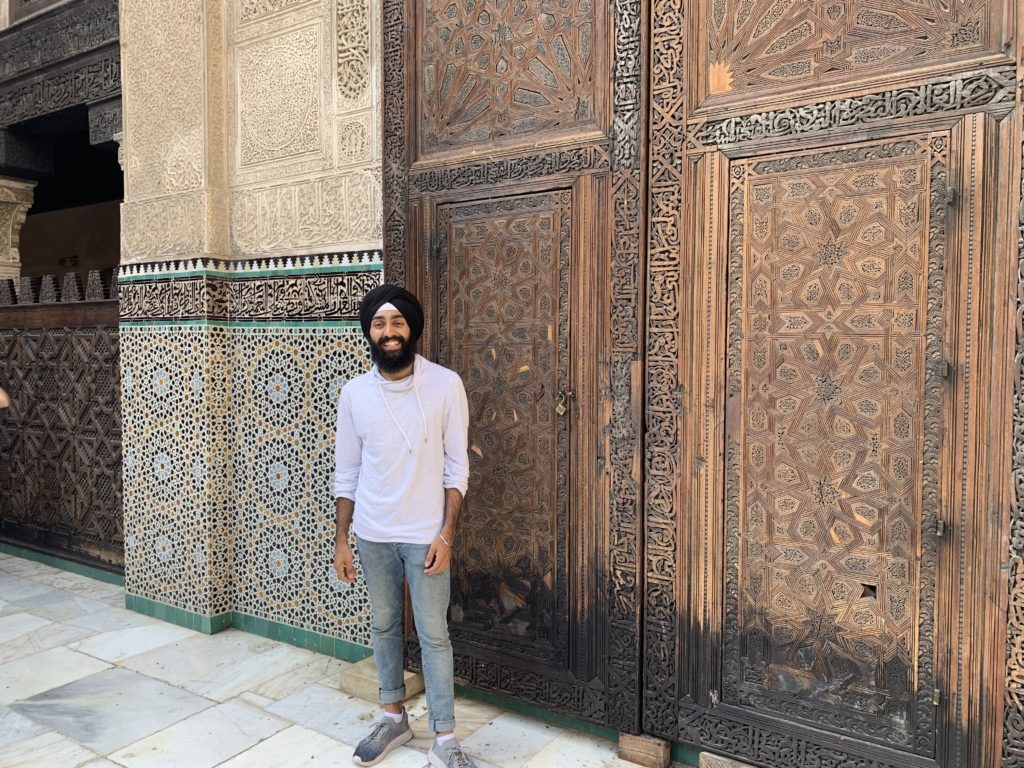The Universal Language
Guest Post by: Jag Bains is a Senior studying Information Systems, Marketing, and Comparative History of Ideas.This summer, Cameron participated in the Triple Impact Africa: Morocco Exploration Seminar.
Apart from a few words I picked up while in Morocco, I don’t speak any Arabic. But I learned that I don’t need to speak the same mother tongue to connect with people in a genuine way.
During our program, we spent several days trekking through the Atlas Mountains. We hiked in the mornings, relaxed in the afternoons, and camped at night. We had trek guides who led the way as well as a crew of men who cooked meals for us each day. Now, I don’t speak Arabic, and most of these men don’t speak English, but that didn’t matter. I had brought a soccer ball with me on the trek, so as soon we arrived to our resting point on the first day, I pulled out the ball and started kicking it around. Immediately, a few of the men joined… then a few more… and then a few more, until we were all in a big circle playing different games. Before long, we were teaming up to try and make others mess up on purpose, and when someone would, the air would fill with laughter. Even though we understood little in each other’s languages, we used our body language and facial expressions to communicate with each other as we played soccer for most of the afternoon. By the end of it, all of us were sweating from the heat but had smiles glued onto our faces.
When we arrived at our stop the next day, they immediately pulled out the soccer ball and asked if I wanted to join. And, of course, I did. By the end of the trek, the men knew my name and would just say “Jag!” and indicate if I wanted to play soccer with them. These moments were special because we were able to build friendships with one another across languages. Soccer truly is a universal sport, but above all, I learned that happiness transcends all language barriers.


